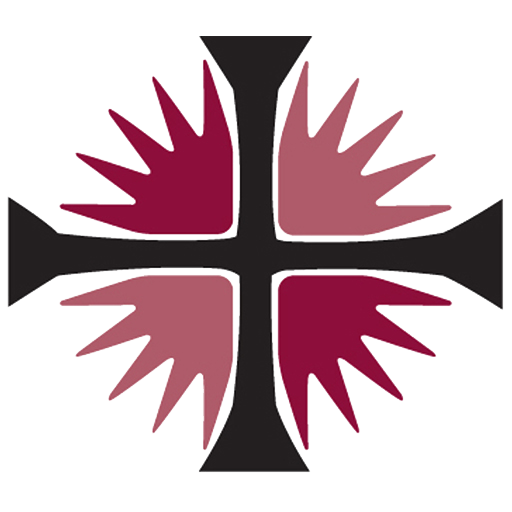Partners in Health and Wholeness is thrilled to announce a mental health funding opportunity for BIPOC (Black & Brown, Indigenous, People of Color) faith communities.
Thanks to The Duke Endowment, PHW is able to offer two grant opportunities for faith communities of color to apply towards mental health efforts.
- A $5,000-$10,000 grant to work on a mental health project. Up to 50 grants will be awarded in this range.
- A grant up to $50,000 to establish a mental health community hub through your faith community. We will award two grants in this range.
This application period for both of these grant opportunities will be rolling until Friday, May 5, 2023
We strongly encourage you to first apply for one of the $5,000-10,000 grants before applying for one of the larger grants. Faith communities can potentially receive both grants and applicants should not wait to apply for the bigger grant before seeking out one of the smaller funding opportunities. Please only apply for the amount that your faith community needs and can properly use towards mental health efforts. Applicants are still eligible to apply for one of PHW’s standard mini-grants, even if they are rewarded a special BIPOC Mental Health Grant.
These grants are meant to begin and strengthen mental health efforts in the local church. In order to apply:
- The applicant must be a faith community.
- Your faith community must have a current PHW Collaborative Pledge on file.
- The faith community must be predominantly of color/ BIPOC (Black and Brown, Indigenous, and People of Color).
How to apply for the PHW BIPOC Mental Health Grant:
- Complete and submit an up-to-date PHW Collaborative Pledge and Clergy Commitment
- Click the red buttons below for more information and the grant applications.
Please read the FAQ section or reach out to Jessica (jessica@ncchurches.org) with any questions. Good luck!
Project ideas for PHW BIPOC Mental Grant
Please think outside of the box! These ideas offer a simple start:
- Collaborate with mental health professionals who can provide direct services to your faith community
- Host speakers for mental health events (consider their honorarium, travel, lodging, etc.)
- Provide mental health workshops and learning series to the community
- Offer mental health trainings to the church, especially for those in supportive roles
- Offer suicide prevention and post-vention suicide support trainings
- Help offset therapy payments, provide vouchers for mental health care
- Host an onsite mental health professional at your building, provide office space
- Provide programming for all ages about age-specific mental health concerns, consider children, youth, caregivers, older adults and more
- Host special mental health worship services that highlight needed topics
- Encourage children and youth volunteers to learn about ACES (Adverse Childhood Experiences)
- Establish and provide space for support groups that range from grief care, widow care, life transitions, to NAMI (National Alliance on Mental Illness local affiliates)
- Develop a shuttle system to help get people to appointments
- Consider helping people who need assistance in obtaining housing due to unfavorable renting history with character statements
- Think of the many ways that mental health impacts our everyday functioning, and what is effected by that
- Develop a Robust Referral System for your church and train all roles to utilize it, including all staff, pastoral and administrative, and volunteers
- Find ways to support pastoral staff’s mental health, build in retreat, self-care days for the leadership, and access to professional mental health resources.
- Normalize professional therapy
- Pay for virtual access to therapy for congregants, including phone applications and more.
- Establish trauma-informed practices in the faith community (https://www.ncchurches.org/sacred-series-toolkit-becoming-a-trauma-informed-faith-community/)
- Eliminate stigma on mental health
- Celebrate mental health and emotional well-being
- Learn and share ways to have resilience and awareness of our personal trauma and emotions
Black and Brown, Indigenous, Persons of Color (BIPOC). In our usage, we are referring to any faith community that is not predominantly white or caucasian. With BIPOC, we include Asian American and Latinx persons.
The Rev. Jessica Stokes at Jessica@ncchurches.org
-You must have a current PHW Collaborative Pledge on file. (See next question for more information).
-The applicant must be a faith community.
-The faith community must be predominantly of color/ BIPOC (Black and Brown, Indigenous, and People of Color).
- Complete and submit an up-to-date PHW Collaborative Pledge and Clergy Commitment
- Click the red button below to go to the PHW BIPOC Mental Health Grant application.
As our name states, we partner with faith communities as they seek to live more healthy, whole, abundant lives. The PHW Collaborative Pledge is an online application in which a faith community pledges to work on faith and shares about what their goals are, current projects are where they need support, and more to offer us a holistic idea of their health ministry. This serves as a portfolio that is updated annually so that we can track progress together and better support the faith community’s needs. Here is the link for the: Collaborative Pledge
Included in the PHW Collaborative Pledge, we ask all congregations to submit a Clergy Commitment each year. This is a link that you may share with your faith leader and takes a few moments to fill out. The intent of our Clergy Commitment is to give the congregational Health Lead and PHW an active promise by the clergy person(s) to support the health ministry and integrate health as a faith issue. Here is the link for the: Clergy Commitment
Both the PHW Collaborative Pledge and the Clergy Commitment must be filled out annually (every 12 calendar months) in order for your standing to be active and to apply for any of PHW’s grants. This is the first step in applying for a grant.
No, the PHW Collaborative Pledge is open to any worshiping community. Due to our roots with the NC Council of Churches, much of the language used on our website and in our worship materials are of the Christian tradition. However, we welcome and encourage ALL worshiping communities to make positive changes to improve health by submitting a Collaborative Pledge and applying for a PHW mini-grant or Community mini-grant.
Yes, you may apply to both of the BIPOC grant opportunities: One of the $5,000-10,0000 grants as well as one of the larger grants (two to three grants up to $50,0000) that you will be able to apply for later in 2022. We encourage all interested faith communities to first apply to one of the 50 grants in the $5,000-10,0000 range because receiving one of those grants will not disqualify you from later applying for one of the big grants.
And you are still invited annually to apply and receive one of our PHW mini-grants (up to 1,000 towards any health project, including mental health and more) or a PHW Community Mini-Grant (three or more congregations applying together for up $5,000 towards a shared project). (https://www.ncchurches.org/programs/phw/phw-mini-grants/)
This special grant opportunity will accept applications from May 2022 until May 5, 2023, or until funds run out. We encourage faith communities to not wait and go ahead and apply.
The application will be “rolling” through May 5, 2023. This means that you may apply at any time. Please also go ahead and submit your up-to-date PHW Collaborative Pledge when you plan to apply.
Applications will be reviewed on a quarterly basis, beginning in July 2022. You will be notified of your application’s status after these quarterly reviews. Your application will be reviewed depending on when you submit it.
We are grateful to have a review committee that is diverse in age, race, and professional backgrounds including mental health professionals, nursing, professors in higher education, and more. These community leaders will compassionately consider the contexts of each application. There are no PHW or NC Council of Churches staff on the review committee.
The PHW Collaborative dates for 2021 are January 15th to November 31st. When submitting your PHW Collaborative Pledge, you will be asked to describe the health topics that your congregation has focused on during the past 12 months and the health topics that your congregation will focus on in the next 12 months.
In addition to the PHW Collaborative Pledge, we ask all congregations to submit a Clergy Commitment each year. The intent of our Clergy Commitment is to give the congregational Health Lead and PHW an active promise by the clergy person(s) to support the health ministry and integrate health as a faith issue.
No. Our applications does not allow for a congregational Health Lead to pause the form or save it mid-way through. We recommend you print this document to prepare your responses BEFORE entering them on the form. We also highly recommend you save your answers on a separate document as you fill out the form so that you do not lose your responses if the form closes for any reason. Once you have submitted the form successfully, a copy of your answers will be sent to your email and your faith leader’s email.
Yes. Once you have submitted the form successfully, a copy of your answers will be sent to your email and your faith leader’s email. Nevertheless, we recommend you print the pledge to prepare your responses BEFORE entering them on the form. We also highly recommend you save your answers on a separate document as you fill out the form so that you do not lose your responses if the form closes for any reason.
The health lead is the contact person at your congregation that is part of the health ministry who is dedicated to completing form submissions and maintaining the relationship with Partners of Health and Wholeness. The health lead is also the person who would ask the clergy person to submit a Clergy Commitment as well. The health lead and clergy person may be the same person. We recommend finding a health lead who is not the clergy person because we want to respect the set of responsibilities that clergy already have on their plate.

